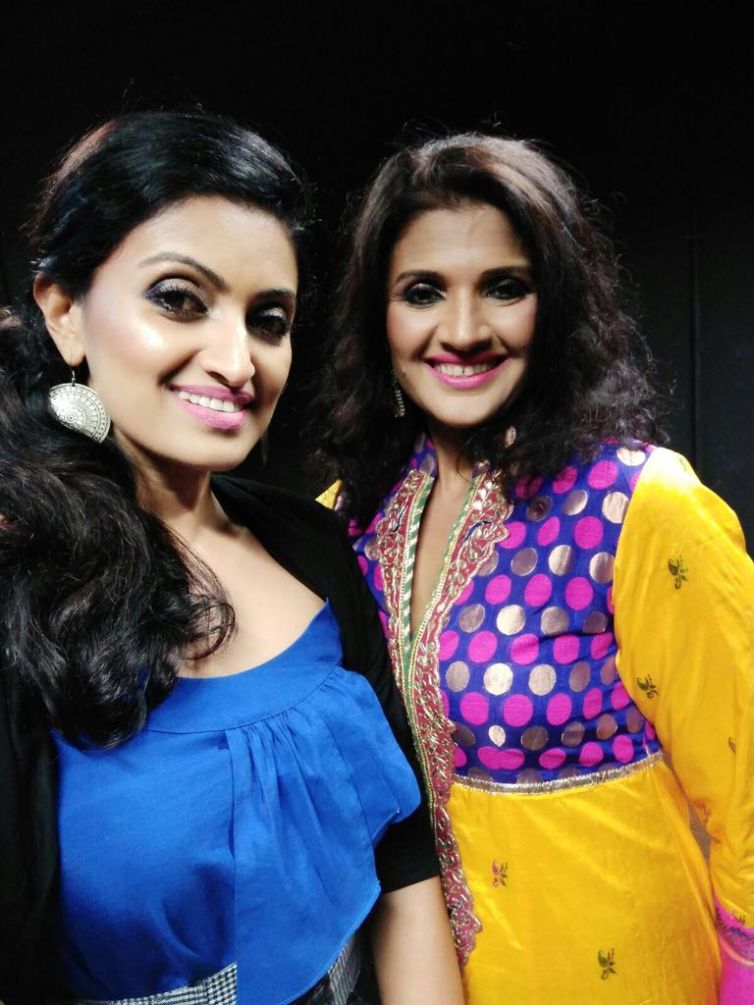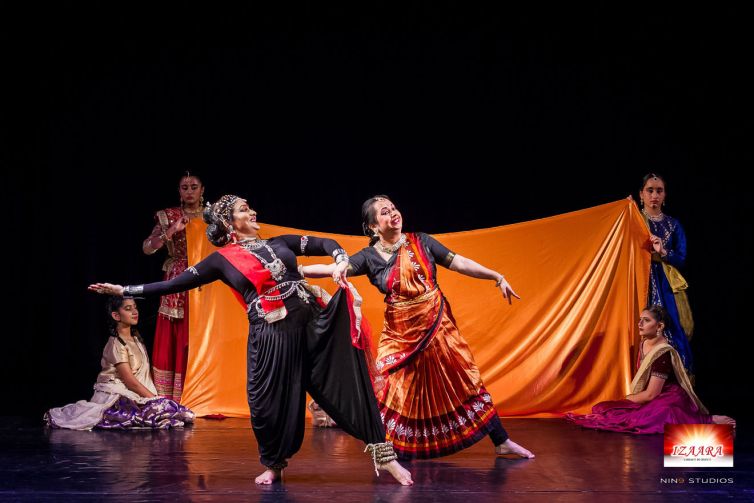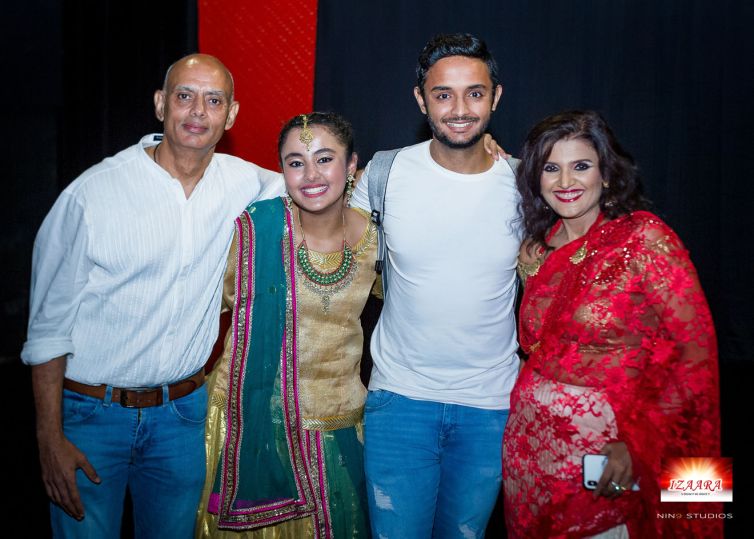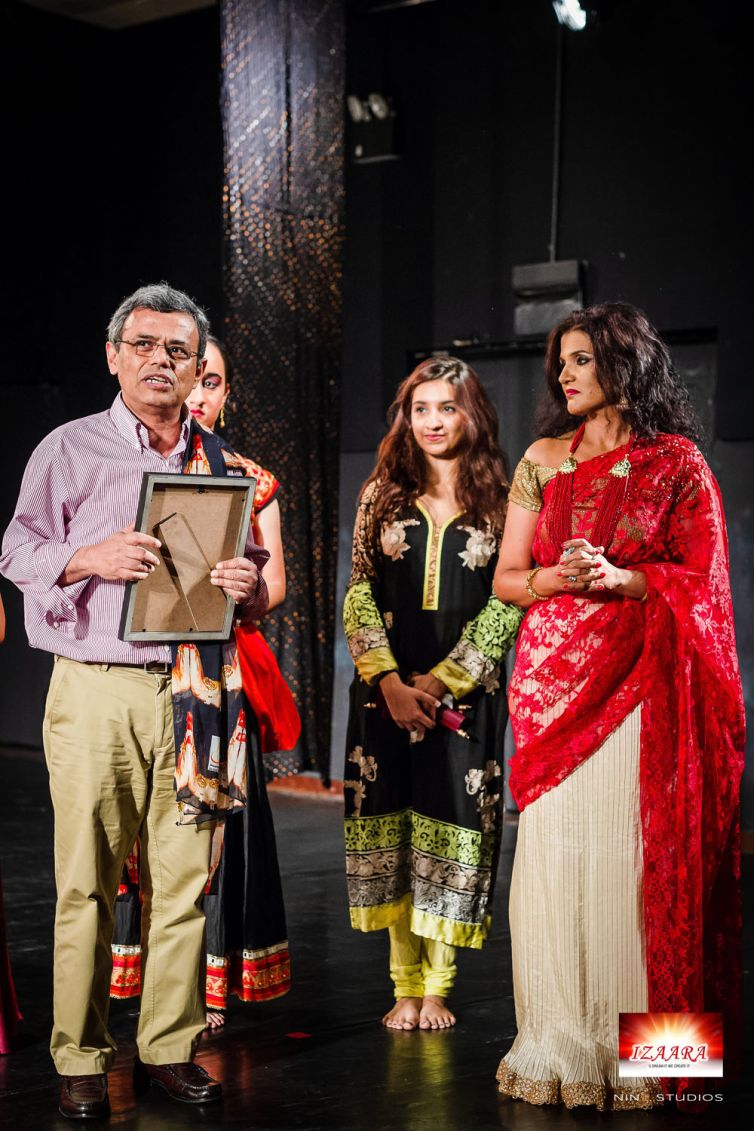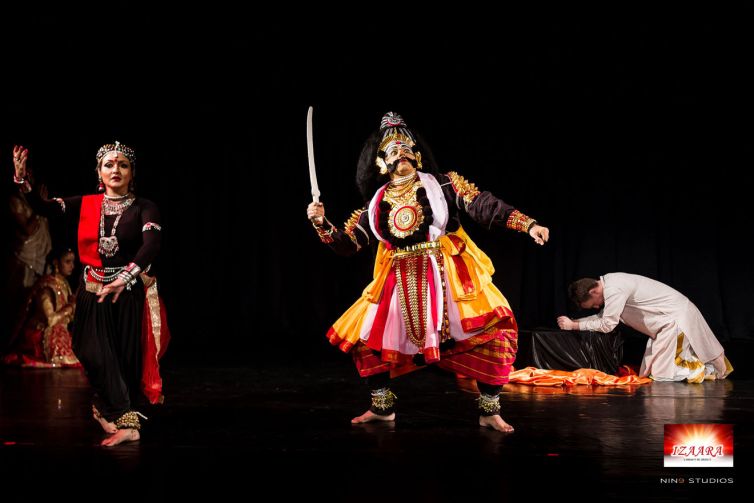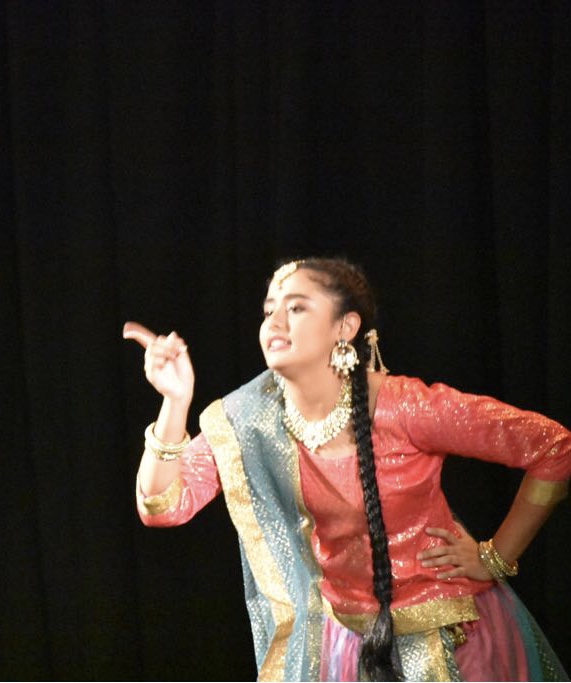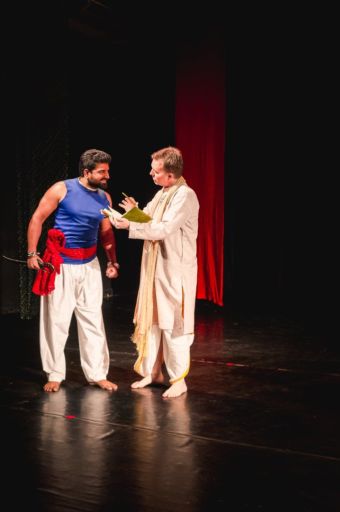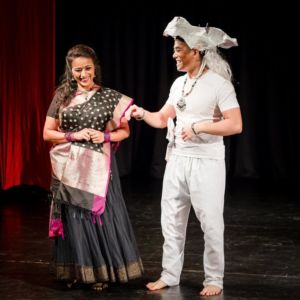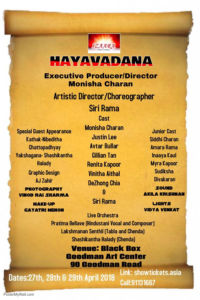Hayavadana
27th-29th April 2018
Multi-Ethnic Theater Productions
A FACE/OFF SET IN THE WORLD OF MYTHOLOGY AND FOLKLORE
Conceptualised by: Monisha Charan and Dr Siri Rama
Executive producer & Director: Monisha Charan
Artistic director and choreographer: Dr Siri Rama
Girish Karnad’s play Hayavadana is considered one of the landmark works in the annals of Indian theatre. The play brings about the interplay of questions of love, identity and sexuality through a panoply of characters set in a world of mythology and folklore.
Recently, Izaara Productions brought this famous play alive on stage in Singapore under the skilful direction of Monisha Charan.
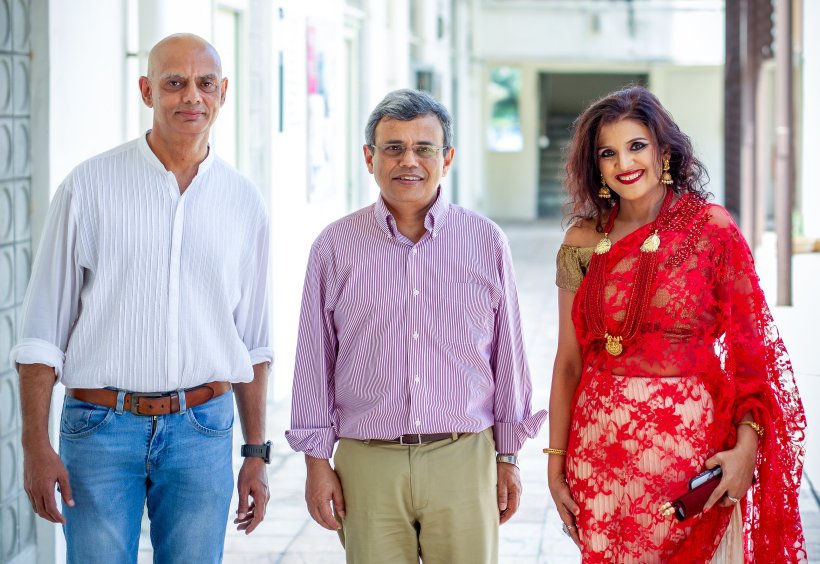
The play began with a brief narration on the play’s antecedents: one of the influences behind the play was Thomas Mann’s The Transposed Heads, which in turn was borrowed from a Kathasaritasagara story. In keeping with the spirit of the play, Monisha Charan paid a rich tribute to the myths and legends of the Hindu religion.
The plot revolves around two parallel stories, both involving questions of love and identity (the heart and the head). In the main track, a well-built kshatriya, Kapila (Avtar Bhullar), finds that his best friend Devadatta (Justin Lee) has madly fallen in love with Padmini (Dr. Siri Rama). Although Kapila harbours an attraction for Padmini, his love and loyalty stands above all; he arranges the match for Devadatta and Padmini and they get married.
The director has made sure that the two actors present a contrast in their physicality and demeanour: Kapila is a Kshatriya with a muscular and manly appearance; Devadatta is a learned Brahmin and poet with a weak physique. The playwright cleverly poses the question to the audience: what if their physicalities are switched? What if the weak Brahmin poet becomes muscular and the sinewy warrior takes the body of the weak poet? Are they happy in their new avatars? What happens to Padmini’s love in that case?
Subtly, the play comments on the rigidity of the caste system which imposes a hierarchy on people. Along with the main track, the sub-plot features the Hayavadana (the horse-man), played with gusto by De Zhong Chia, who is unhappy because he feels incomplete with the face of a horse and the body of a man; yet, he is the object of affection of a beautiful lady, played by Renita Kapoor. I wish this track had more layers to it, as we find in the main track.
Hayavadana featured on Vasantham Indian Beat S9 – EP9
This week on Indian Beat, find out more about Hayavadana. Presented with a multi – national local cast, the play poses an interesting question of the nature of human identity in a world of tangled relationships.
In Hayavadana, Karnad delves into the questions of existentialism through the quest of the individual for the assertion of his self despite his limitations and idiosyncrasies. When the head in not in tune with the body, it leads to a situation of conflict. Can there be synergy between, say, a head full of old ideas and a body living in the modern times? This could well be the reality for many across the world.
One of the philosophical questions posed in the play is about the identity of the individual. What is a person’s identity – his head (face) or his body? At one point in the play, the poet Devadatta says that according to the Shastras, the head is what signifies a man. Should that settle the question for us?
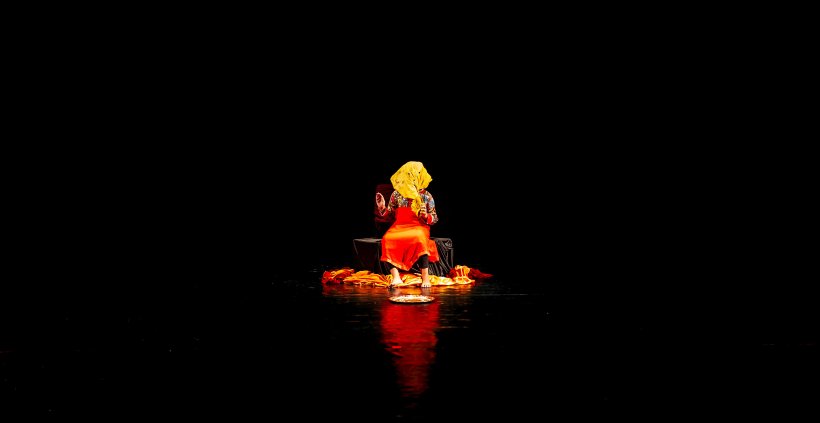
Padmini, who lives her married life with a man who has the head of Devdutta and the body of Kapila, also faces this conflict. But in another sense, thanks to Goddess Kali, this conflicted transposition becomes a blessing for Padmini – she has the best of both the worlds!
Hayavadana is a difficult play to pull off, but under Charan’s direction, the Singaporean adaptation of the play achieved several high points. First, the casting was remarkable. In keeping with the spirit of Singapore, it had mixed Indian and Chinese cast. Secondly, she was able to flawlessly blend classical Indian dance and music into the narrative, turning it into a memorable production. She made very good use of children to populate the narrative. The sets were not lavishly designed but there was a balanced use of props to keep the play grounded in the world of myth and folklore.
Overall, kudos to Charan and her team for successfully staging such a complex, multi-layered play with a multicultural caste.
Review by Zafar Anjum
www.kitaab.org
@zafaranjum
www.zafaranjum.com
Photographs courtesy Vinod Rai Sharma of Nin9studios
Makeup by Gayatri Menon
What our clients say
Hi Monisha, congratulations on a brilliant production! Terrific acting, brilliant singing and dancing by the artists! Great job of putting it all together!
My pleasure I really enjoyed it.
Babe a rocking ensemble cast & mixed medium delivery You ruled the black box with this one
Hey.i enjoy classical so really loved it.. u did awesome and ur whole crew did amazing job and Siddhi dances so very well
Hey babes, a fantastic play with amazing actors and moments that caught our attention ???????????? Kudos to you ????????
Hi Monisha, the play was very good…i enjoyed it a lot…especially Kali, rudra dances..made me have goosebumps…the comedy & the acting of the cast…????????
Good work ???? , the play was excellent as it had the dance element in it was really nice


